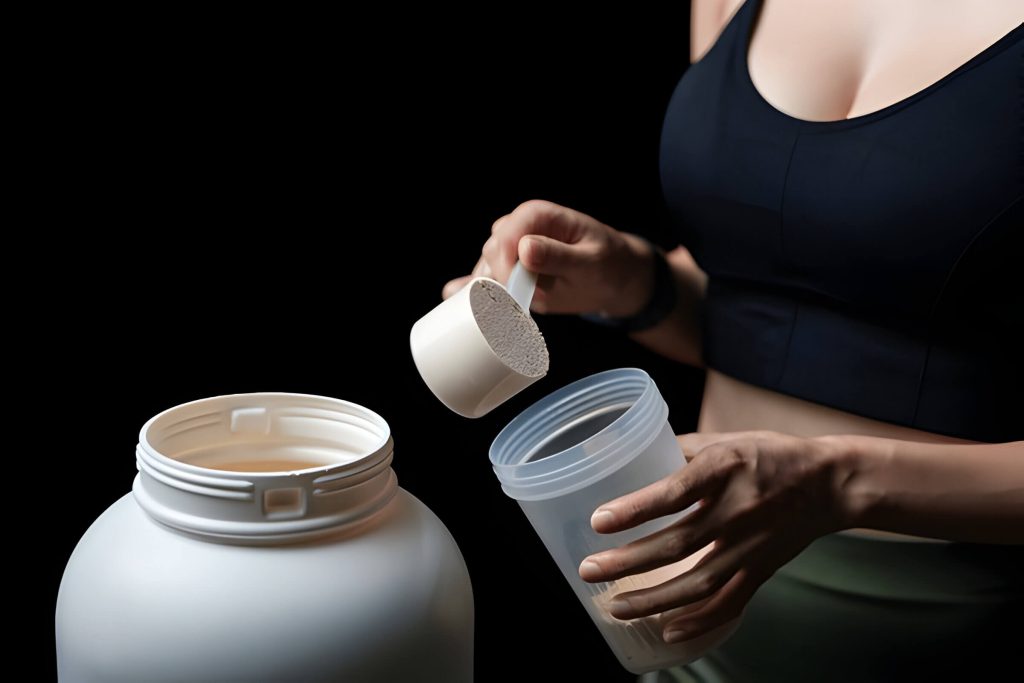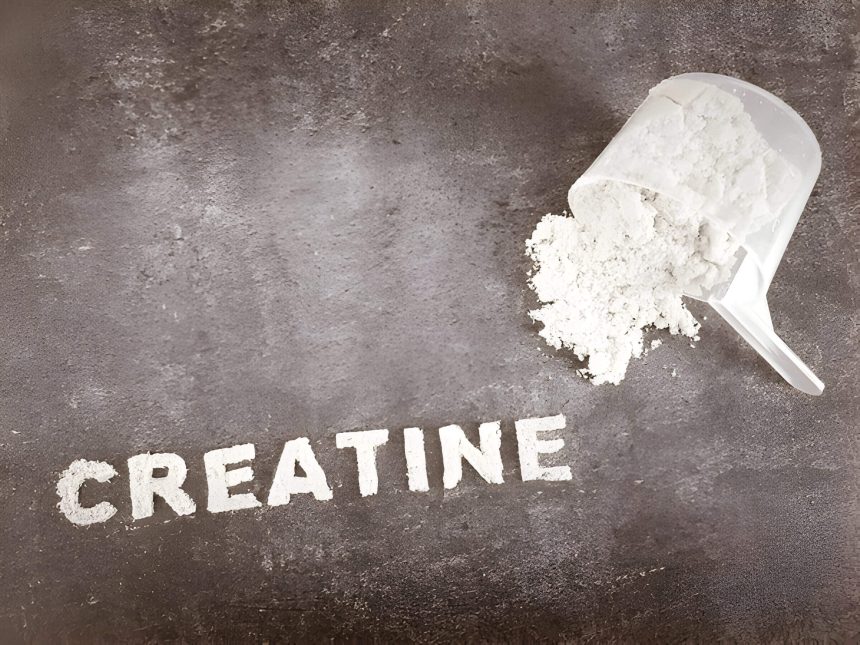Creatine, a popular supplement in the fitness world, is often associated with muscle growth and improved athletic performance. However, its role in weight loss is frequently misunderstood. This article delves into the facts surrounding creatine supplementation, exploring its primary benefits, potential impact on weight loss, and common misconceptions. By examining the science behind creatine and its effects on the body, we aim to provide clarity on how this supplement fits into a comprehensive approach to fitness and weight management.
What is Creatine and How Does it Work in the Body?

Creatine is a naturally occurring compound found in small quantities in certain foods and synthesized by the body. It plays a crucial role in energy production, particularly during high-intensity, short-duration activities. The primary function of creatine is to help regenerate adenosine triphosphate (ATP), the body’s primary energy currency.
In the body, creatine is converted to phosphocreatine and stored in muscle tissues. During intense physical exertion, phosphocreatine rapidly donates a phosphate group to ADP (adenosine diphosphate) to form ATP, providing an immediate source of energy for muscle contractions. This process allows for sustained power output during activities like weightlifting or sprinting.
The body can synthesize creatine from amino acids, primarily in the liver and kidneys. However, dietary sources such as red meat and fish also contribute to creatine levels. Supplementation with creatine monohydrate has become popular among athletes and fitness enthusiasts to increase muscle phosphocreatine stores, potentially enhancing performance and promoting muscle growth.
Understanding creatine’s role in energy metabolism highlights its importance in both athletic performance and general cellular function. As research continues, we gain more insight into the diverse applications of creatine beyond sports nutrition.
The Primary Benefits of Creatine Supplementation
Creatine supplementation offers several key benefits for athletes and fitness enthusiasts alike. One of the primary advantages is its ability to enhance muscle strength and power output. By increasing the body’s phosphocreatine stores, creatine enables muscles to produce more ATP, the primary energy source for high-intensity, short-duration activities.
Another significant benefit is the potential for increased muscle mass. Creatine supplementation can lead to greater muscle fiber growth and improved protein synthesis, resulting in more noticeable gains when combined with resistance training.
Exercise performance is also positively impacted by creatine intake. Users often experience improved endurance during high-intensity workouts, allowing them to push harder and longer during training sessions. This increased work capacity can lead to better overall fitness outcomes.
Additionally, creatine has been shown to reduce recovery time between intense bouts of exercise. By buffering lactic acid buildup and reducing muscle damage, athletes can bounce back faster and maintain a more consistent training schedule.
While creatine is generally safe and effective for most individuals, proper dosing and adequate hydration are crucial for maximizing its benefits and minimizing potential side effects.
Potential Side Effects and Considerations When Using Creatine
Creatine is generally considered safe for most individuals when used as directed, but it’s important to be aware of potential side effects and considerations. The recommended dosage typically ranges from 3-5 grams per day, with some protocols suggesting a brief loading phase of 20 grams daily for 5-7 days. It’s crucial to stay well-hydrated when using creatine, as it can increase water retention in muscles.
While concerns have been raised about creatine’s impact on kidney function, research has shown that it’s generally safe for individuals with healthy kidneys (ncbi). However, those with pre-existing kidney conditions should consult a healthcare professional before use. Some users may experience mild side effects such as bloating, stomach discomfort, or muscle cramps, particularly during the initial stages of supplementation.
Long-term effects of creatine use have been studied extensively, with most research indicating no significant negative impacts when used as recommended. However, as with any supplement, it’s advisable to cycle off periodically and monitor your body’s response. Always purchase creatine from reputable sources to ensure product quality and purity.
Combining Creatine with a Balanced Diet and Exercise Routine
Incorporating creatine into your fitness regimen can be highly effective when combined with a balanced diet and structured exercise routine. To maximize its benefits, consider implementing a creatine loading phase, typically lasting 5-7 days, where you consume 20-25 grams of creatine daily, divided into 4-5 doses. After this initial period, transition to a maintenance dose of 3-5 grams per day.
Proper workout nutrition is crucial when using creatine. Ensure adequate protein intake, aiming for 1.6-2.2 grams per kilogram of body weight daily, to support muscle growth and recovery. Timing your carbohydrate consumption is equally important; consume complex carbs before your workout for sustained energy and simple carbs post-workout to replenish glycogen stores.
Creatine supplementation works best when paired with resistance training and high-intensity exercises. Consistency in both your supplement regimen and workout routine is key to achieving optimal results. By synergizing creatine supplementation with a well-planned diet and exercise program, you can enhance your athletic performance and muscle-building potential.
How Creatine Indirectly Supports Weight Loss Goals
Creatine, primarily known for its muscle-building properties, can indirectly support weight loss goals through various mechanisms. By enhancing exercise performance, creatine allows for increased workout intensity and duration, leading to greater calorie burning during training sessions. As it promotes muscle growth, creatine contributes to an increase in lean body mass, which in turn elevates basal metabolic rate. This higher metabolic rate results in more calories burned throughout the day, even at rest.
Moreover, creatine improves exercise endurance, enabling individuals to push harder and longer during their workouts. This increased capacity for physical activity translates to more effective fat-burning sessions and improved overall fitness. Additionally, the water retention associated with creatine use can lead to a fuller muscle appearance, potentially motivating individuals to stay committed to their fitness routines.
While creatine itself doesn’t directly cause fat loss, its ability to enhance workout performance, build muscle, and boost metabolism makes it a valuable supplement for those pursuing weight loss goals in conjunction with a balanced diet and regular exercise regimen.
Other Supplements That May Aid Weight Loss Efforts
When it comes to weight loss, many people turn to supplements to support their efforts. While a balanced diet and regular exercise remain the foundation of any successful weight loss journey, certain supplements may provide additional benefits. Fat burners and thermogenics are popular choices, designed to increase metabolism and promote fat oxidation. These often contain ingredients like caffeine and green tea extract, which can boost energy expenditure and fat burning.
Appetite suppressants are another category of supplements that may aid weight loss by helping to control hunger and reduce calorie intake. These can include natural ingredients like fiber or synthetic compounds that affect hunger hormones. Caffeine, found in many weight loss supplements, not only increases metabolism but can also help suppress appetite temporarily.
Green tea extract is a common ingredient in weight loss supplements due to its potential to enhance fat oxidation and increase energy expenditure. It contains catechins, particularly epigallocatechin gallate (EGCG), which may contribute to its weight loss effects.
While these supplements may offer some benefits, it’s crucial to remember that they are not magic solutions. They should be used in conjunction with a healthy lifestyle and under the guidance of a healthcare professional to ensure safety and efficacy.
Creatine and Weight Loss (Separating Fact from Fiction)

Creatine is widely known for its muscle-building properties, but its effects on weight loss are often misunderstood. While creatine itself doesn’t directly cause fat loss, several studies have shown its potential indirect benefits for weight management.
One common misconception is that creatine leads to weight gain. In reality, initial weight increases are typically due to water retention, not fat. This effect is temporary and doesn’t negatively impact fat loss efforts.
Research indicates that creatine can contribute to increased lean body mass, which may boost metabolism (jscr). A higher metabolic rate can potentially enhance fat burning over time. Additionally, creatine supplementation may improve exercise performance, allowing for more intense workouts and greater calorie expenditure.
It’s important to note that creatine isn’t a magic solution for weight loss. Its primary benefits lie in improving strength and muscle growth. However, when combined with a balanced diet and regular exercise, creatine can support overall body composition changes that may indirectly contribute to weight loss goals.
While creatine doesn’t directly burn fat, its ability to enhance workout performance and increase lean muscle mass makes it a valuable tool for those looking to improve their body composition and potentially support weight loss efforts.
